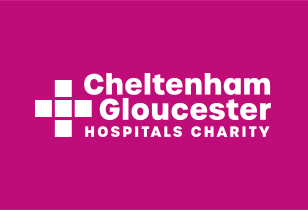Specialist Palliative Care
Palliative care is about supporting people to have the best quality of life possible when they are faced with a potentially life-threatening illness.
Palliative care aims to ease pain and other distressing symptoms, helping people to feel more comfortable. But we also look after the whole person, including their emotional and spiritual needs.
Palliative is not the same as end-of-life care and it can start early in the illness, alongside treatments to help someone live longer. You do not have to be dying to receive palliative care.
Different teams will work together to make sure the needs of both patients and their families are met. We will work hard to understand issues early, whether physical, social, practical, emotional or spiritual, to help the person we’re caring for feel the best they can.
End of life care is defined as care provided in the expected last year of life. It is common that people will associate the term ‘End of Life Care’ with a much shorter time before someone’s death.
The specialist palliative care team will not see every patient who is approaching the end of their life and we recognise that end of life care is provided by all staff within healthcare. The specialist palliative care team work with colleagues throughout our trust to improve end of life care for everyone.
When might Specialist Palliative Care team referral be appropriate?
The specialist palliative care team see patients who have complex symptoms, psychological, social or spiritual issue which has not responded to usual measures.
Often patients referred to us have an advanced, progressive, potentially life-threatening condition. Sometimes people associate specialist palliative care with cancer but we can help with other illnesses too.
Palliative Care can be needed alongside treatments for underlying conditions, like surgery, chemotherapy, radiotherapy or surgery. This kind of palliative care has been called ‘Enhanced Supportive Care’.
Types of support we can provide:
- advice and support on the management of symptom control issues including pain, nausea and vomiting, fatigue and breathlessness
- psychological support and advice for you, your family and your carers.
- spiritual and cultural needs
- social and financial issues
- planning for discharge, liaising closely with health and social care teams in the community
Referrals are accepted from all healthcare professionals although we will confirm referral with inpatient hospital Consultant or GP as appropriate.
How do we see patients?
Hospital specialist palliative care
There is an inpatient hospital team with staff based on each site 9-5, Mon-Fri. Where possible, patients are seen within one working day of referral.
Community specialist palliative care
Our community team can review patients in outpatient clinics or in their own homes. They also operate between 9am and 5pm, Monday to Friday.
Referrals are triaged according to the information provided on the Community Specialist Palliative Care Nursing Service Referral Form
Outpatient clinics
- We offer out-patient reviews with the Medical Consultants in a variety of locations.
- We have an Enhanced Supportive Care service that supports people with certain types of incurable cancer. This service operates within the oncology outpatient department, with clinics at GRH too.
- In addition, we are developing Enhanced Supportive Care clinics that support patients at an earlier stage following a cancer diagnosis. These clinics are undertaken by a range of specialists from the palliative care team and oncology services.
Out-of-hours
For out-of-hours concerns, all healthcare professionals across the county can contact our team for telephone advice.
Guidelines for health professionals
- Palliative care guidance NHS Scotland
- Guidance for symptom control in end of life care
- How to prescribe controlled drugs
- Management of blood sugars when on steroids
- Management of diabetes in last days of life
- Opioid conversion calculator
- Supportive care for renal patients
- Transdermal patch where eGFR greater than 30 mmolsl
- Transdermal patch where eGFR less than 30 mmolsl
- Guidance for management of breathlessness
